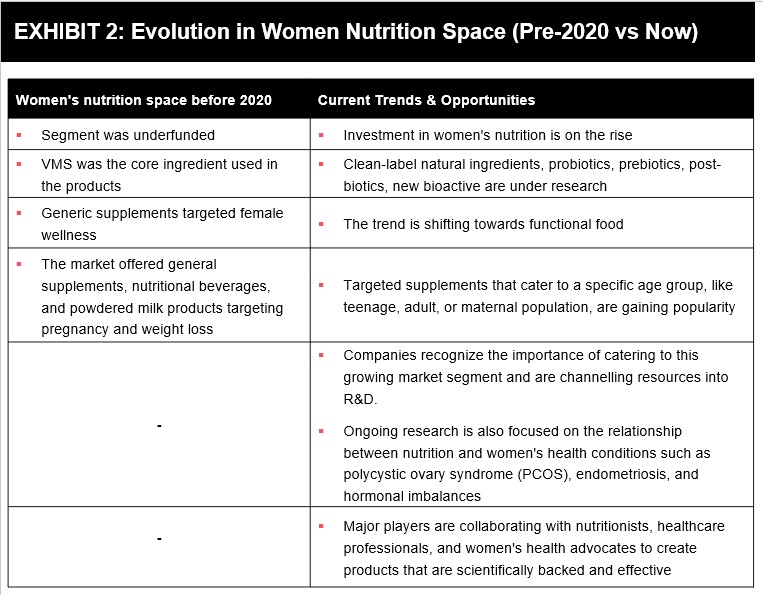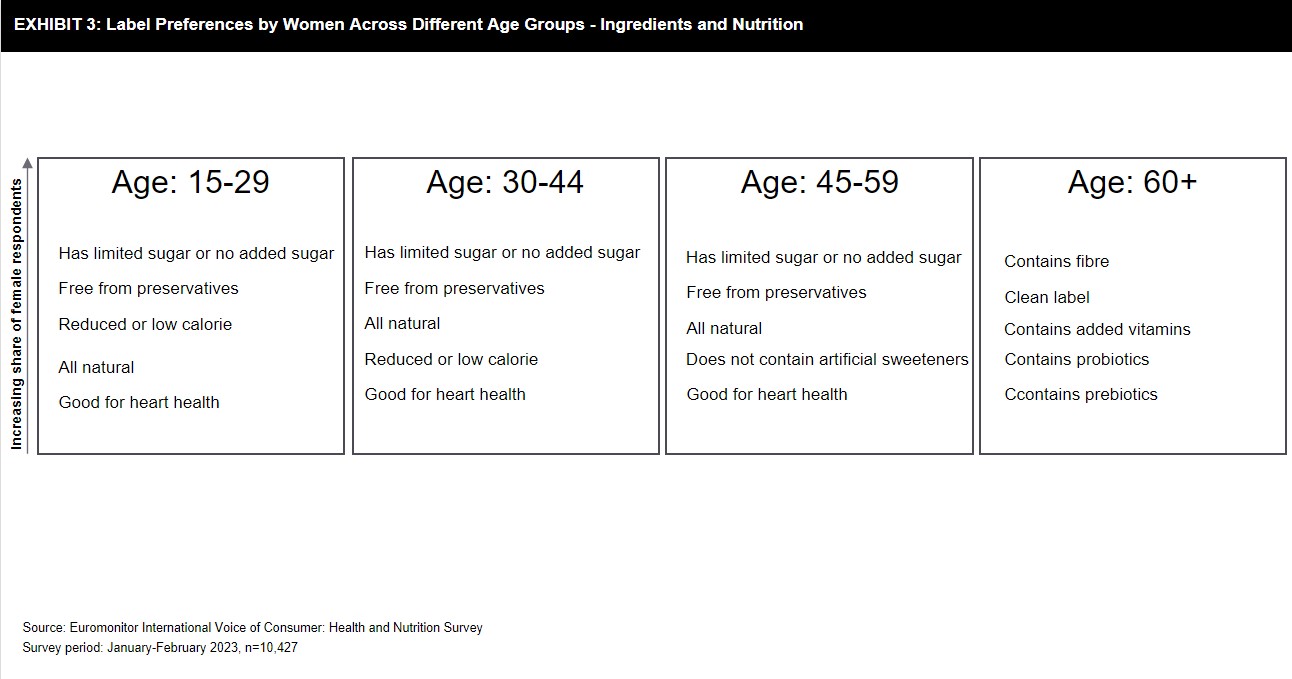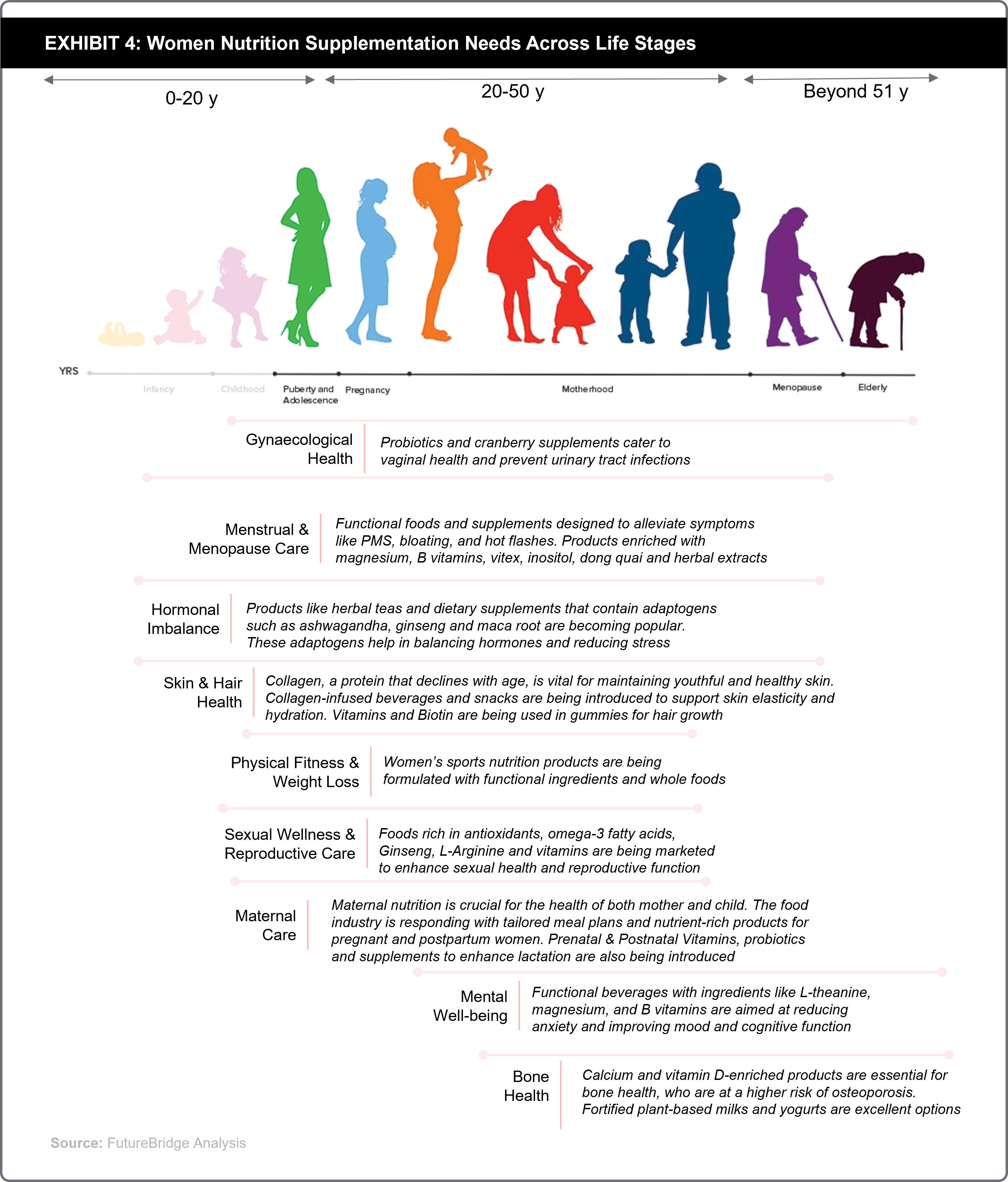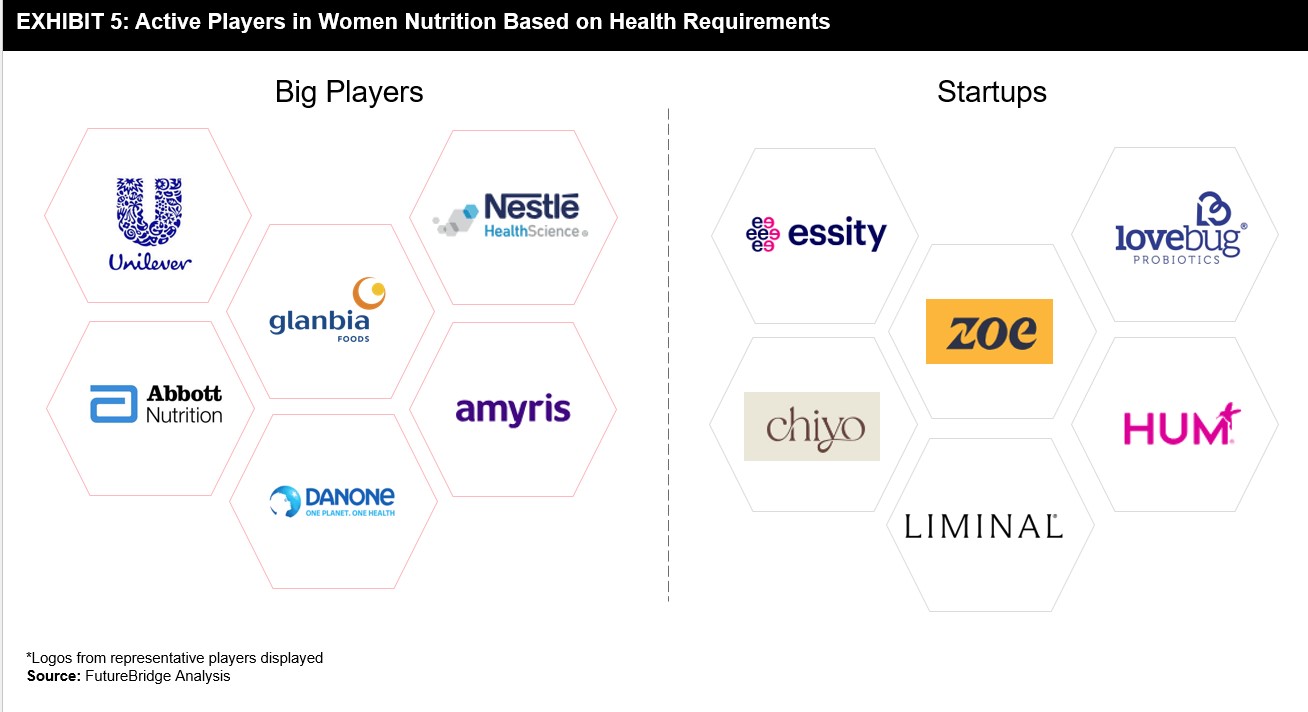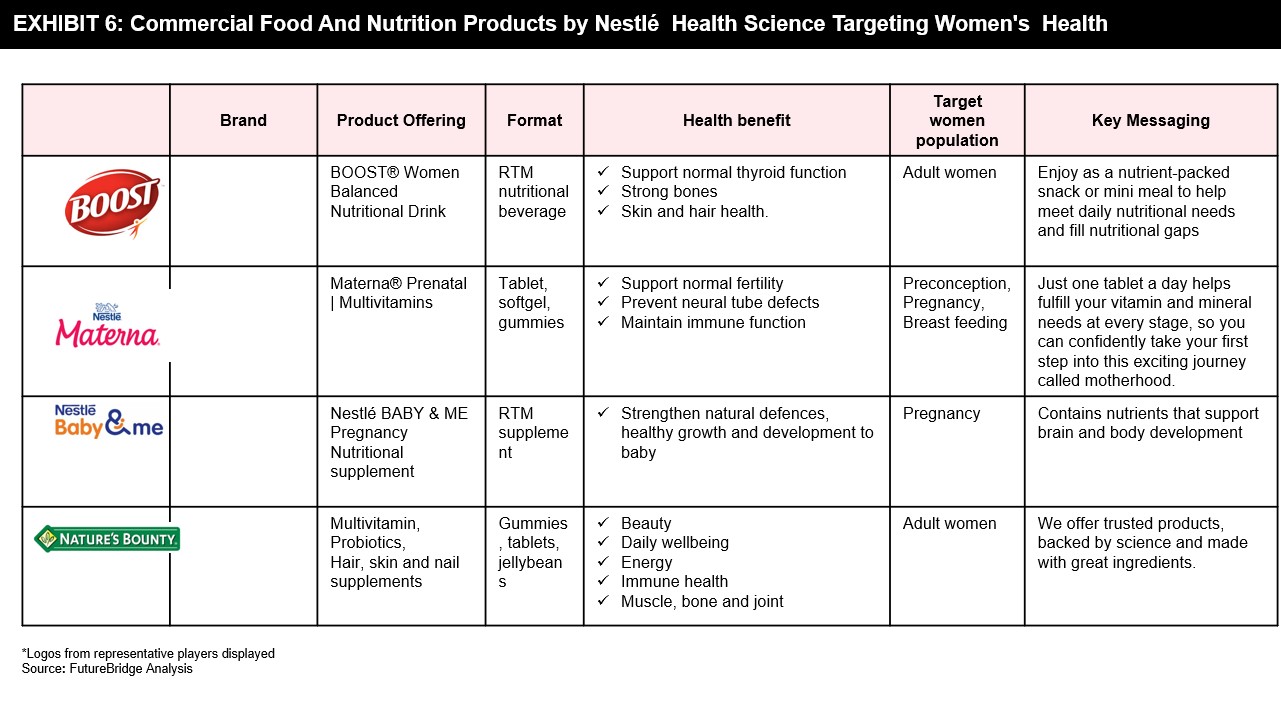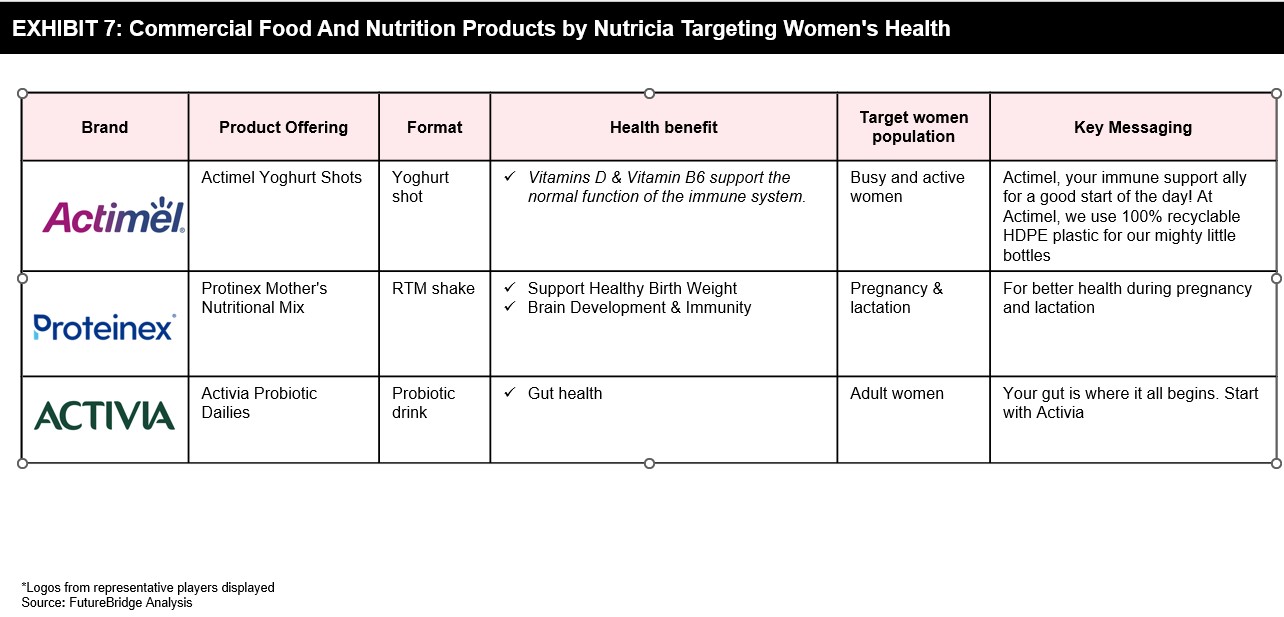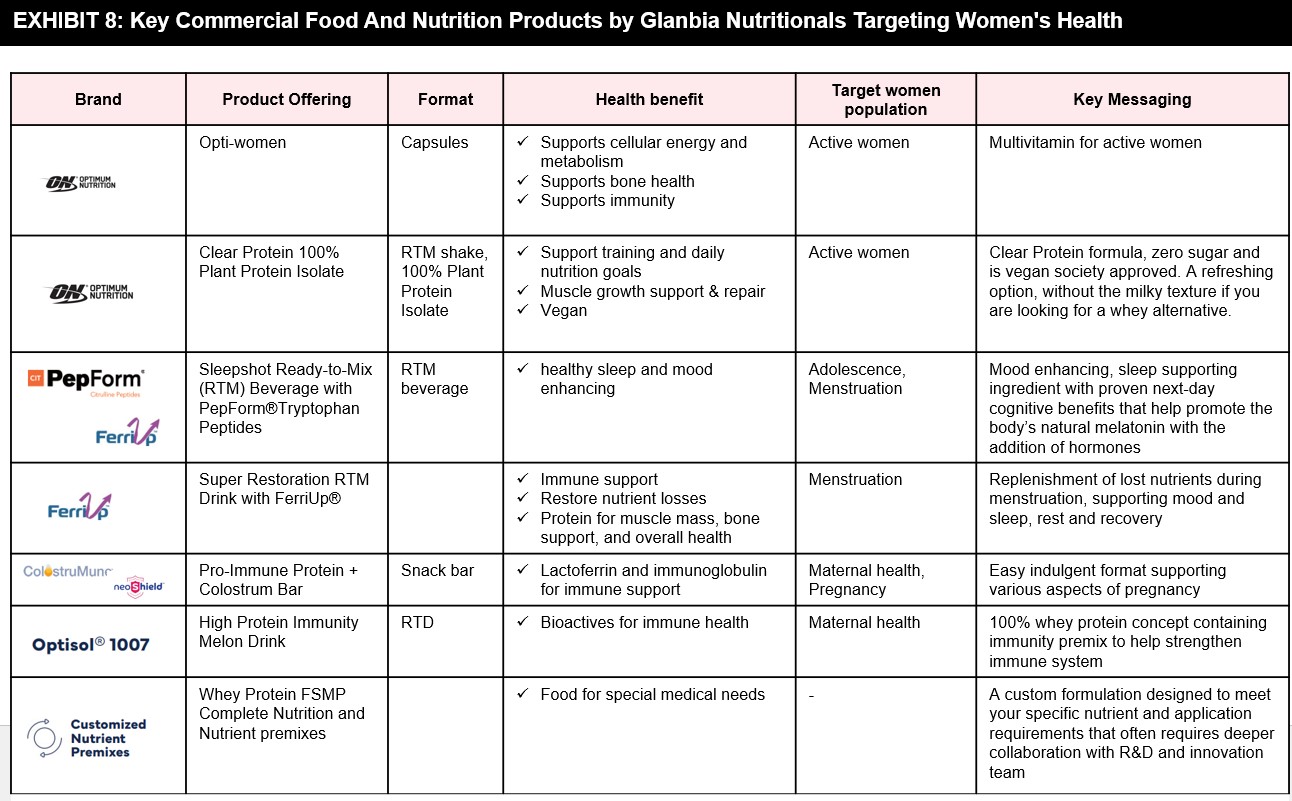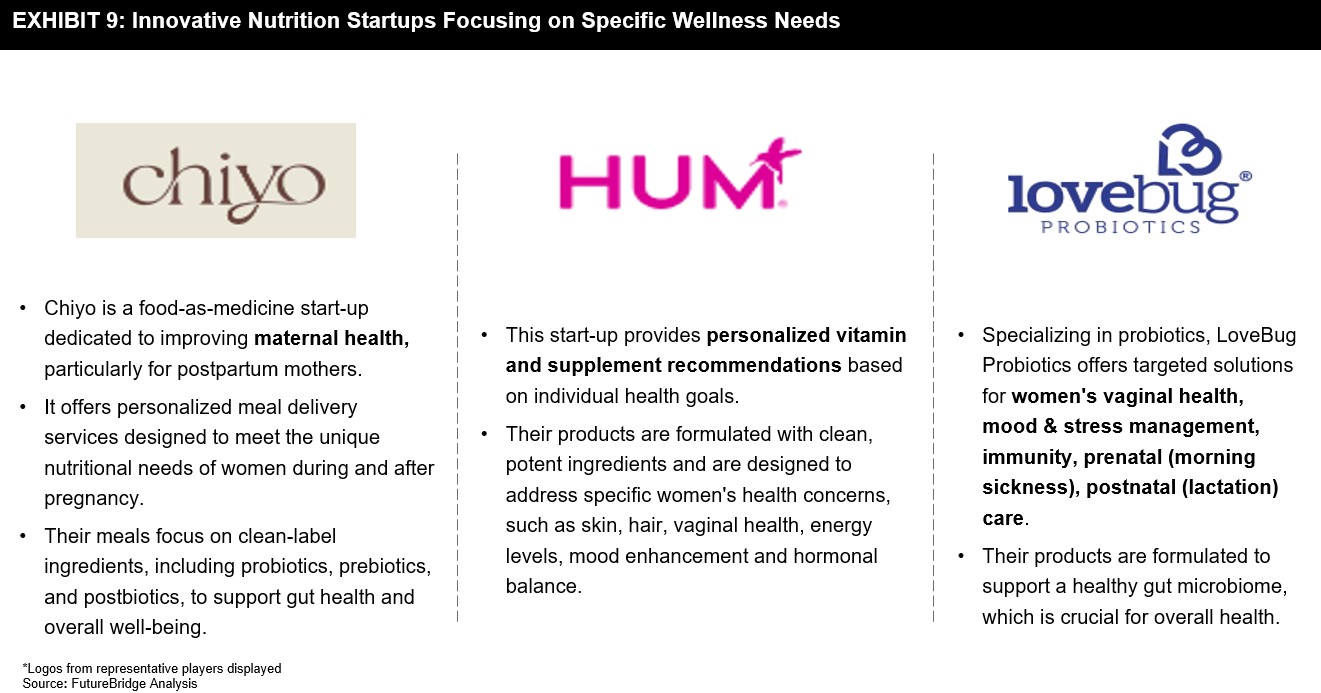Need states across various women life stages
- Puberty and Adolescence
Adolescent women have distinct nutritional requirements due to rapid physical growth, hormonal fluctuations, and the onset of menstruation during this stage. As puberty progresses, these changes significantly influence the body’s nutritional needs. This period is marked by changes in skin, mood swings, and the importance of establishing healthy dietary habits, all of which contribute to overall health, development, and future reproductive well-being. During menstruation, hormonal fluctuations and nutrient loss influence a range of physiological changes and ultimately impact nutrition needs. Key nutritional requirements include adequate caloric intake, sufficient protein, iron, calcium, folate, essential fatty acids, and various micronutrients. Additionally, by focusing on key vitamins, minerals, healthy fats, and fibre, probiotics women can support their reproductive health and manage symptoms associated with various gynaecological conditions.
- Pregnancy and Motherhood
Pregnant and nursing women have increased nutritional requirements to support foetal growth and development, as well as the demands of breastfeeding. Maternal health encompasses the periods before conception, during pregnancy, and throughout the postnatal phase. Significant metabolic changes occur during both pregnancy and lactation, making it essential to address these nutritional needs for the well-being of both mother and child. There is growing interest in the health of women during preconception and conception, as these stages can significantly influence pregnancy outcomes. Key nutritional requirements during this time include folic acid, iron, choline, and calcium, all of which are vital for the mother’s health. Additionally, the demands for macronutrients and micronutrients increase during pregnancy and lactation, with heightened needs for protein, carbohydrates, and omega-3 fatty acids to support metabolic and cellular development.
- Menopause
By 2025, it is projected that approximately one billion women worldwide will be experiencing menopause. This staggering statistic highlights the pressing need for tailored solutions to help manage the various stages of menopause, from the period leading up to menopause (perimenopause) to the years following the cessation of menstrual cycles (post-menopause), as well as the menopausal stage itself. As women navigate these hormonal changes, there is an increasing demand for personalized products and support to alleviate symptoms and maintain overall well-being during this significant transition in their lives.
Menopause is defined by the permanent end of the menstrual cycle and a decline in ovarian follicular activity. This phase typically occurs between the ages of 45 and 50. During menopause, women undergo hormonal changes that can influence their nutritional requirements. Adequate nutrition is vital for managing symptoms and minimizing the risk of long-term health issues, such as obesity, metabolic syndrome, osteoporosis, and cardiovascular disease, which are more common during this period. High-quality proteins, nutrients that support mineral density, phytoestrogens, and those that enhance sleep and immunity are essential nutritional needs during this stage. Over half of peri-, post- and menopausal women are looking more specifically toward natural health products, vitamins and supplements to boost their overall health. The segment has been considerably overlooked, as almost 90% women say brands need to be more inclusive and that they have never seen any specific marketing/advertising for menopause products, based on a recent market research survey.
- Elderly
The aging process is characterized by various losses, with the most common being the decline in bone mineral density. This can lead to severe osteoporotic fractures and limit the mobility of the elderly. Older women are at a higher risk of bone loss, which can reach 2-3% per year, compared to men. This greater bone loss among women occurs after menopause due to estrogen deficiency, resulting in decreased intestinal calcium absorption. The elevated bone turnover in older adults is also attributed to vitamin D3 deficiency, which affects calcium homeostasis by decreasing intestinal calcium absorption. Meeting the nutritional needs of elderly women is crucial for promoting health, preventing chronic diseases, and enhancing their quality of life. Conditions like osteopenia, fractures, type II diabetes, malnutrition, and nutritional deficiencies are common among the elderly. Prevention and treatment of these conditions can be achieved through interventions involving correct dietary habits, supplements, and adequate intake of nutrients required for maintaining proper health. Special emphasis must be given to geriatric health for maintaining their health status and decreasing the prevalence of chronic diseases. Crucial micronutrients that improve cognitive dysfunction include vitamin C, B complex, thiamine, pyridoxine, calcium, magnesium, and zinc, along with vitamin D3 and iron, which enhance nutrient absorption in the body.





